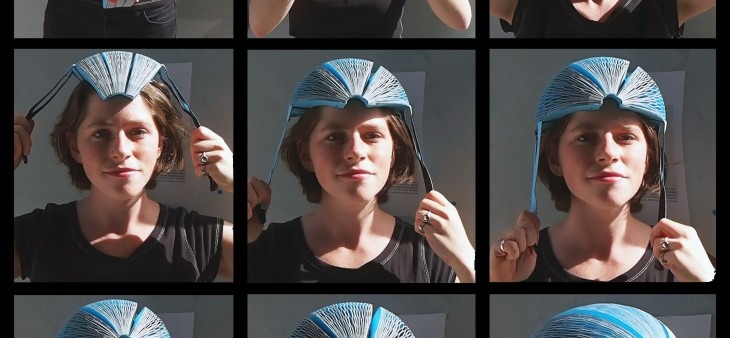
We always like to celebrate tech innovation and, with this in mind, we always look forward to the announcement of the International Dyson Award recipient. Since 2002, the James Dyson Award has been open to university or recent design graduates across the world.
This year James Dyson and his team have presented the award to an innovative and simple idea. So many of the great ideas are outwardly simple, bringing forth the question: why has nobody thought that before?
This year the award was presented to designer Isis Shiffer for her EcoHelmet. Designed for people who use bike-sharing schemes and might not always have a helmet with them, the EcoHelmet came about Shiffer, “was exploring new cities I had no access to a helmet, and I didn’t want to spend $30 buying one.”
Genius! We are sure that we are not alone in thinking when we see a person on a bike scheme bike in say, London and just how dangerous it is to be riding around a city as busy as London without a helmet. Shiffer has designed a helmet that can nestle in your bag and be available when you need it.
Made of cheap, recyclable materials, with a cost of less than £4, the helmet uses a honeycomb structure to protect the head which, according to Ms Shiffer, is “incredibly good at absorbing impact”.
The design was tested at Imperial College in London.
“They have a test rig for helmets, and the professor in charge of the lab let me test out a lot of materials. It turns out it was a lot of fun. There is a frame with an anvil on the bottom and an accelerometer to measure speed and impact,” explained Ms Shiffer.
“It is so solid, and everyone who had held it in their hands is surprised about how solid it is,” she said.
James Dyson said that the EcoHelmet, “solves an obvious problem in an incredibly elegant way.”
As with conventional bike helmets the EcoHelmet works, in the same way, a, with the cell structure distributing any impact evenly around the head, and thus protecting the rider blows coming from any direction.
The helmet is coated with a material that makes it rain resistant for between three to four hours. The idea is to trial the helmet in New York next year and from there, if successful, open it out to cities across the globe. Shiffer has been open with admitting that the EcoHelmet is only designed for limited usage. Ultimately she may have a final design with a visible stripe that will wear off when the helmet has reached the end of it’s ‘safe’ life.
So there is still some work to do, but Shiffer has the comfort of £30,000 from the Dyson Foundation to develop her innovation further. We really think this can take off and once again applaud the Dyson Award for their support of future ‘James Dyson’s’!
